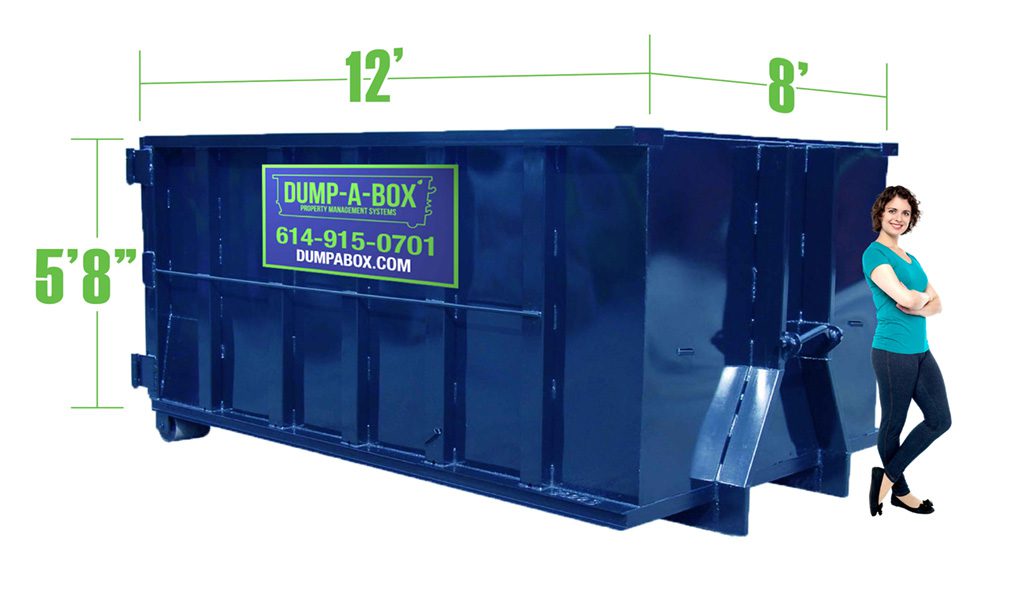Renting a dumpster entails a number of crucial aspects to think about, including selecting the right size based upon task range and waste kind, understanding debris restrictions and prohibited materials, and taking care of rental durations and logistics. Exact estimate of rental duration and weight limitations is crucial to prevent additional charges, while recognition of local regulations and permitting requirements is very important to prevent penalties or removal. With numerous expenses and fees to take into account, consisting of shipment, disposal, and obese fees, it is necessary to have a clear understanding of the entire procedure to assure an effective and cost-efficient dumpster rental experience that meets your special needs.
Choosing the Right Dumpster Size
To determine the ideal dumpster size, take into account the scope of your project, consisting of the amount and kind of waste to be removed.
For small-scale projects, such as cleaning out a single area or small restorations, a 10-15 backyard dumpster might be sufficient.
Larger projects, like construction or demolition, might need a 20-30 lawn dumpster or perhaps larger.
It's likewise vital to take into consideration any kind of space constraints, such as narrow alleys or tight corners, that might influence dumpster placement and accessibility.
Understanding Debris Restrictions
Debris restrictions play an essential duty in ensuring that dumpster rentals are used efficiently and properly. These limitations differ by dumpster rental company and local laws, so it's essential to recognize what materials are enabled and prohibited in the dumpster.
Generally, most dumpster rental companies accept home garbage, building particles, and backyard waste. Nevertheless, hazardous materials like batteries, electronics, and chemicals are purely restricted as a result of ecological and safety and security concerns.
Additionally, some firms may have specific rules for things like tires, appliances, and cushions, which might need special handling or disposal. Recognizing these limitations ahead of time can conserve you from additional fees, penalties, or perhaps having the dumpster rejected.
Be certain to ask your dumpster rental provider about their particular debris restrictions and guidelines to ensure a smooth and certified rental experience. By understanding these regulations, you can successfully manage your waste disposal needs while additionally protecting the environment and community.
Rental Duration and Logistics
Most dumpster rental periods range from a few days to several weeks, depending on the range and duration of the project.
It's crucial to identify the length of time you'll need the dumpster to guarantee you have sufficient time to complete your project without sustaining additional fees Typically, leasings can be extended if needed, yet it's necessary to communicate with the rental company ahead of time to prevent any penalties.
When preparation your rental duration, think about the dimension of your task, the quantity of debris you expect to create, and the availability of the dumpster.
Keep in mind that dumpsters might have weight limits, so it is very important to estimate the weight of your waste accurately. Failing to do so might cause additional costs or perhaps dumpster elimination prior to the rental period is over.
Logistically, dumpsters are normally delivered and chosen up during service hours, so strategy accordingly to ensure a person is available to approve the shipment and oversee the pickup.
Be sure to ask about any type of specific requirements or limitations for dumpster placement on your residential or commercial property to avoid any kind of concerns throughout the rental period.
Costs and Extra Fees
The general price of a dumpster rental normally incorporates the rental period, dumpster dimension, and kind of waste being gotten rid of. These aspects can differ depending upon the particular requirements of your project, and understanding exactly how they influence the final cost is essential.
Some extra costs to think about include:

- Delivery and pickup fees: These charges cover the price of delivering the dumpster to and from your site. Overweight charges: If the dumpster surpasses its weight capacity, you might be billed extra. Disposal fees: The price of taking care of the waste can differ depending on the kind and quantity. Fuel surcharges: Some rental companies might include a gas surcharge to the final bill Late fees: Failing to return the dumpster promptly can cause extra charges.
It's essential to review these potential fees with your rental company in advance to prevent any kind of surprises when the last bill arrives.
Permitting and Zoning Laws
Project website logistics play a necessary role in dumpster rentals, as local regulations can considerably affect the rental procedure. Permitting and zoning laws, https://honey-injure.uncrn.co/blog/preparation-a-move-heres-why-you-required-a-dumpster-rental/ specifically, can be a difficulty if not properly addressed.
Before leasing a dumpster, it's essential to establish if any type of permits are required to put the dumpster on your property or in a specific place. Failure to get the necessary permits can result in fines, charges, and even dumpster removal.
To avoid such concerns, it's suggested to consult with your local government or homeowners association (if suitable) to comprehend the regulations in your area.
Some municipalities might require an authorization for dumpster placement, while others might have specific restrictions on dumpster size, type, or placement. Furthermore, zoning regulations may dictate where dumpsters can be put on your property, such as range from walkways or neighboring properties.